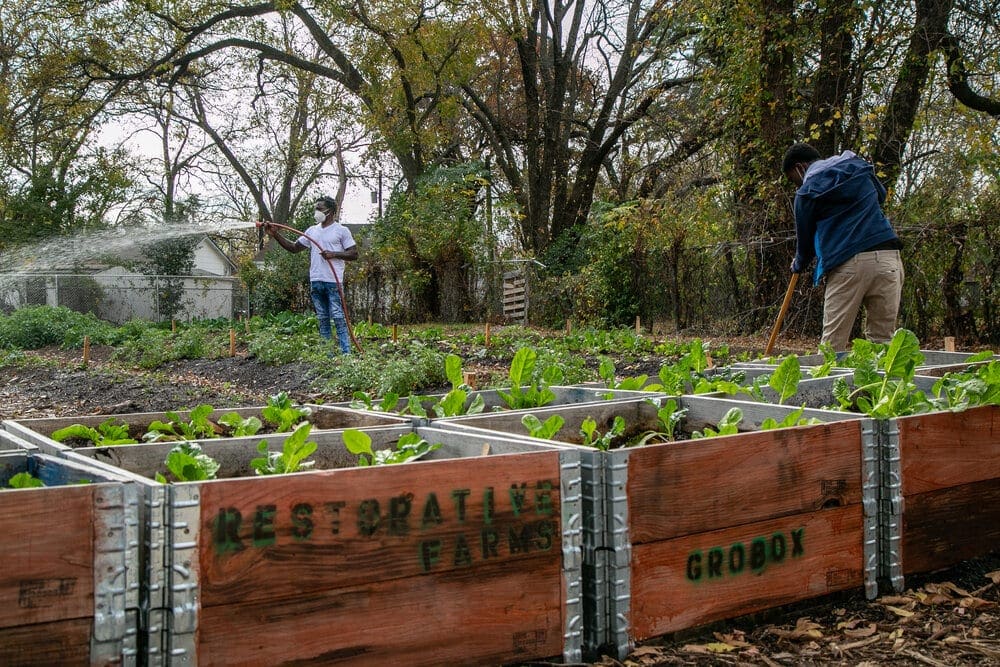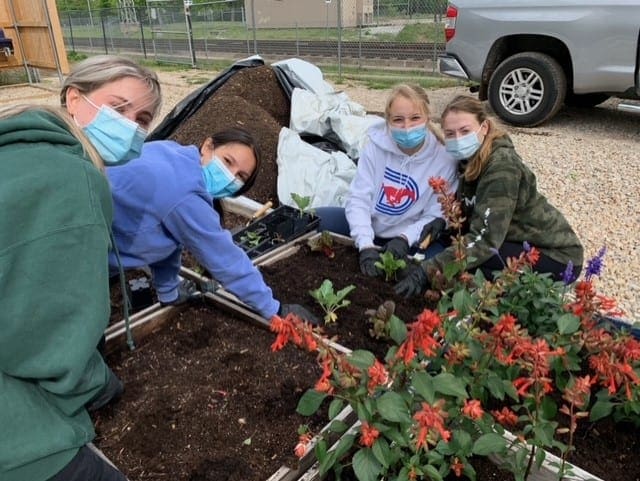Food deserts are a systematic issue around the world, as individuals in impoverished communities lack the resources within their community to have access to healthy and affordable produce. Southern Methodist University professors, Dr. Owen Lynch and Dr. Doric Earle joined forces to find a solution that would increase social equity and social justice through social enterprise. The solution? Restorative Farms.

“The Mission of Restorative Farms is to foster a vibrant and viable community-based urban farm system in South Dallas, TX, a community that most needs fresh food access and employment. Our goal is to create a self-sustaining, professionally-run farm system (what we call an “agrisystem”) to: Grow and sell fresh, local vegetables; build and sell GroBoxes, seedlings, and soil; and provide meaningful jobs as well as farming and entrepreneurial training. We believe that professionally run, efficient, small-scale agriculture can be an integral part of local economic growth as well as environmental and health equity.” (https://www.restorativefarms.org/).
Since its launch in March 2020, the nonprofit has faced many challenges- Coronavirus and the Texas winter storm just to name a few. The pandemic forced Restorative Farms to pivot online and emphasize e-commerce. As a result, the Restoration Farms’ GroBox bloomed. Over the past year, COVID-19 has shown the lack of resilience in America’s food system and how much food insecurity there is. GroBox addresses this issue because it provides people with the ability to feed themselves by growing locally. The GroBox includes Restorative Farms’ proprietary soil and seedlings, as well as an informational guide. Users can look forward to a variety of grow packs, depending on what is currently in season. When you purchase a GroBox, you are using your purchasing power to provide jobs, facilitate positive community change, and servicing a market demand.
In addition to GroBoxes, Restorative Farms has Hatcher Station Farm in South Dallas. Dallas Area Rapid Transit (DART) partnered with the nonprofit and the approximately one acre farm is located next to the Hatcher DART Station in South Dallas, TX. Tyrone Day is a fellow Restorative Farms’ co-founder and is the lead farmer at Hatch Station Farm. The work done at Hatcher Station Farm not only teaches people how to grow healthy food, but also creates more jobs and opportunities for individuals who are living in food deserts.
Restorative Farms aims to help restore communities by offering previously incarcerated individuals, who are re-entering society, with meaningful work. When incarcerated individuals leave prison they are presented with very few options for labor and meaningful work. This restorative justice component of the nonprofit seeks at restoring dignity in individuals and growing a better community.

Furthermore, Restorative Farms is working on a massive hydroponic indoor system, known as Grozilla, which has been made from two combined truck-size intermodal containers. GroZilla was made possible by a grant for Restorative Farms’ early and generous partner – Green Mountain Energy’s foundation, Sun Club. Grozilla is currently located adjacent to the State Fair of Texas, where the team is currently testing the viability of Grozilla within the community. If successful, Grozilla would allow farmers to produce food using climate control- which would be revolutionary in situations such as the Dallas winter storm.
Restorative Farms is in discussion with Engage Dallas to create a regular volunteer schedule for individuals within the SMU community. Thus far, Dr. Earle and Dr. Lynch have worked with over sixty-six SMU students on Restorative Farms. Restorative Farms aims to encourage SMU students to be conscious consumers. Keep an eye out for future volunteer opportunities and for GroBoxes on SMU’s campus!
Learn more about Restorative Farms here.

